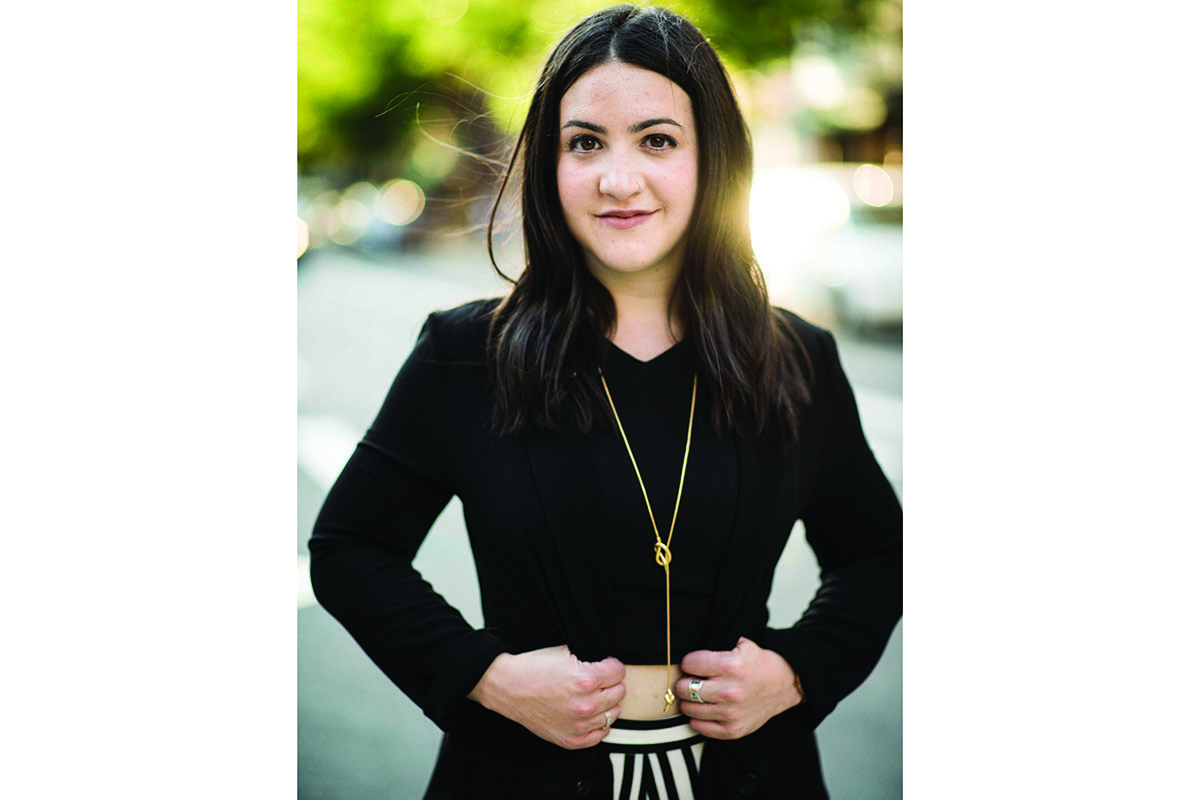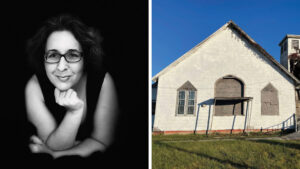Since President Trump took office, women across the country have stepped up and a new era of activism is underway. From the Women’s Marches in 2017 and this year to the #MeToo and Time’s Up movements, it’s clear that women are taking their rights seriously.
Emma Gray, a senior women’s reporter for HuffPost, is used to covering the intersection between politics and gender. A Silver Spring native, Gray says she’s always been aware of politics and activism, attending her first protest rally for LGBTQ rights in 1993 with her parents and grandparents.
That — in conjunction with her time spent at the socialist-Zionist Habonim Dror Camp Moshava, in the Harford County community of Street — prepared her for a career focused on equality and social justice issues.
But Gray says it wasn’t until the 2016 presidential election that she recognized the need for a comprehensive guide for women and girls that pinpointed the best ways to listen, join in and create sustainable action.
Gray, 30, spent the next year writing, “A Girl’s Guide to Joining the Resistance: A Feminist Handbook on Fighting for Good,” published by Harper Collins earlier this year.
Jmore: Why was the time right for you to write this book?
Gray: On Election Night 2016, I was at the Javits Center where Hillary Clinton’s election party — a term I use lightly — was taking place. As journalists, we thought we would be writing about the election of our first woman president. We ended up interviewing people who were sad and scared about the outcome. That January, I had the opportunity to go to D.C. and cover the Women’s March, where I saw what fear, grief and anger looked like when it was channeled into civil action.
There is a new wave of activism that has bubbled up, and women are leading the charge. I couldn’t think of a more timely or useful thing to write about.
Feminism — what’s your definition?
It’s simply a belief in social political and economic equality. It’s not about an individual woman breaking a barrier; it’s about structural, political, economic and social equality for all women and men. It’s a social movement and a belief in equality. We live in a society by the numbers, and currently men hold more amount of power. So it would be dishonest to say we have reached that place of structural equality.
Judaism’s role in your life?
I wouldn’t call myself incredibly religious, but the Jewish heritage and culture backed into my identity. I went to Hebrew school in Montgomery County and a Jewish camp in Bel Air. God plays a huge role in the values I hold dear. The underlying values I associate with Judaism inform this book. I open the book with a story about Clara Lemlich, a young Jewish labor activist who started an uprising of shirtwaist workers. I love digging into the history of young Jewish activists and Jewish women in the labor movement.
You interviewed Women’s March co-chair Carmen Perez, Sen. Elizabeth Warren and Black Lives Matter network co-creator Alicia Garza. What’s their message?
The ultimate message is you are powerful, your story matters and your voice matters. Make your voice louder, take up space and own your power. Just because you are young doesn’t mean your ideas are any less valid.
We have a tendency to dismiss young people. However, we often need young people to be brave enough to imagine their future can be different. In my book, Sen. Warren said, “If you don’t have a seat at the table, you are probably on the menu.” I loved that — step up and don’t wait for someone to give you power. Demand it.
How do the different women’s movements relate to each other?
The #MeToo movement hadn’t started when I wrote the first draft of this book; it had only just started when I did the final touches. However, it perfectly illustrates the theme in the book.
I have an entire chapter on storytelling and how it can create social change. #MeToo is an entire movement based on telling stories to open space for others to tell their stories. You don’t have to be deeply involved in every cause, but you do need to understand how all causes are connected.
I don’t think you can have an effective #MeToo Movement without considering the movement for racial justice or how immigrant women are impacted by sexual harassment. The way for you to tap into a movement is through a point of entry that feels personal. And remember, you have to be able to run the marathon, not the sprint, so start small. Begin in your own community and start with the tools you have there.
How do we empower women?
Some of it is looking at the problems women are facing in communities today and what the solutions are. However, individual empowerment is a Band-Aid solution. We need to look at what legislative and structural changes can be made. Part of this is encouraging women to have these conversations and dive into their own lives to see how structural inequality has impacted them.
We also have to leave space for men to join in on the conversation, as well as be willing to step away from traditional gender roles and widen our idea of what it looks like to be any gender identity. When we do that, we are able to help everyone and tackle the problems at every level.
How do women keep the momentum going?
Continue speaking out on social media. Demand more from elected officials, and vote — that’s the most important. If you aren’t old enough to vote yet, get ready to vote. We are poised to see a massive voting bloc in 2020, and a healthy political system is one where all voices are engaged.
I would have loved to have people speaking directly to me when I was younger. I realize young women today probably don’t need me to tell them anything because they are smart as hell. But if I can bolster these young women with my words and reinforce what they already know, which is that they are powerful and their voices matter, then I’ve done my job.
Aliza Friedlander is a Baltimore-based freelance writer.





